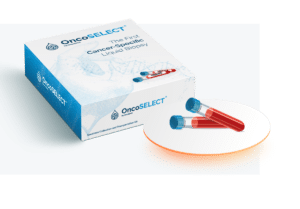Patients & Relatives
There might be better treatment options for your cancer type

How does cancer work?

A collection of diseases
Cancer is the name given to a group of diseases characterized by the abnormal proliferation of cells that can invade different tissues of the body. While healthy cells grow and divide in a controlled manner, cancer cells multiply out of control.

Mutated cell
Tumors begin to develop when a cell acquires a series of mutations that allow it to divide uncontrollably.

Hyperplasia
Multiplication of abnormal cells causes the volume of the tissue to increase, a phenomenon called hyperplasia. Further mutations may occur, which further affect the control of cell growth.

Dysplasia
In addition to showing uncontrolled proliferation, the cells are abnormally shaped. The tissue is now said to show dysplasia. After a while, new genetic changes may occur.

Carcinoma in situ
Mutated cells become even more abnormal in size and appearance, but for the moment they have not spread to other parts of the body. This is called carcinoma in situ, and it may remain confined indefinitely to the area from which it arose.

Invasive cancer
If genetic changes give the abnormal cells the potential for spreading to lymph nodes and nearby tissues, the cancer is said to be invasive. Cells are likely to give rise to new tumors (metastases) throughout the body.
Why is your cancer unique?
Each tumor is unique and treatment can be personalized for each patient
Unique combination of mutations
Each cancer has a different combination of mutations in its DNA. This is what makes a tumor unique.
Biomarker testing helps to establish, what we could call, the fingerprinting of a cancer.


Different types of mutations
There are several types of DNA mutations: single nucleotide variant (SNV), deletion or insertion of DNA nucleotides (indel), fusion of two DNA fragments to create an oncogene, and the amplification (copy/paste) of a same fragment of DNA (CNV). All these mutations can be detected by OncoDNA biomarker tests.
Tumor proteins
In addition to DNA mutations, a tumor may also show many surface proteins that could help identify the best therapy. OncoDNA is a pioneer in analyzing not only the DNA of the tumor but also its proteins. OncoDNA is able to identify these proteins using a technique of tumor cell staining called “immunohistochemistry”.

How can precision medicine help you?

-
Targeted therapies
-
Hormonal therapies
-
Immunotherapy

Targeting specific molecules
Targeted therapies have become key in precision medicine. Many are currently under development. Their goal is to halt tumor progression by inhibiting the activity of specific targets related to tumor progression.
- Extracellular growth factors that promote the formation of new blood vessels (a process called angiogenesis). These blood vessels supply the cancer cells with oxygen and nutrients and are therefore crucial for tumor enlargement and invasion of new tissues.
- Transmembrane receptors. These receptors are located on the surface of tumor cells and bind to extracellular molecules (signals), such as growth factors. The receptors subsequently transmit the signal information to other molecules (proteins) inside of the cell.
- Intracellular proteins that receive the signal transmitted through the transmembrane receptors. They promote a variety of cellular processes, such as tumor growth, survival or invasion.

Blocking hormones action
Hormones are important molecules in our body which regulate many processes, such as growth, development and reproduction.
Hormonal therapies are drugs used to block the action or production of hormones, thereby slowing down or stopping the growth of certain cancers that are hormone-sensitive (meaning that they are dependent on a hormone for survival and/or growth). Hormone-sensitive tumors show hormone receptors on their surface, such as estrogen and progesterone receptors in breast cancer, or androgen receptor in prostate cancer.

Stimulating our immune system
One of the main roles of our immune system is to defend the body against infecting and other foreign agents by distinguishing our body´s own cells from foreign elements. The principal immunologic cells are called leukocytes or white blood cells. Some examples include macrophages and lymphocytes (natural killer cells, T-cells and B-cells).
The immune system not only provides a line of defense against foreign agents, it can also protect us against tumor cells. Unfortunately, cancer cells have several strategies to become “invisible” to the immune system avoiding immune-mediated elimination.
The goal of immunotherapy is to mobilise the patient’s own immune system against the disease. There are several kinds of immunotherapies, such as artificial monoclonal antibodies or immune checkpoint inhibitors. The latter ones bind to molecules that inhibit the immune system, blocking those immune-inhibitory molecules and reactivating the immune system.
What biomarker testing does OncoDNA offer?
OncoDEEP®

Analysis of advanced tumors
OncoDEEP® analyzes a tissue sample from the primary tumor or metastasis through a series of tests on 638 genes and protein biomarkers. This comprehensive biomarker test helps to predict a patient’s response to approved or experimental targeted therapies, immunotherapies, hormonal therapies and chemotherapies.
OncoSELECT

Blood analysis if no tumor tissue is available
OncoSELECT is a fast and minimally invasive analysis of a blood sample. It is the perfect solution to identify treatment options for cancer patients not able to have their tumor biopsied or whose biopsy is too old. It can help to detect treatment resistance to targeted therapies (before first-line to check the heterogeneity of the disease, or during/after treatment to check for acquired resistance mutations), as well as to monitor cancer progression.
OncoFOLLOW

Personalized liquid biopsy as a monitoring tool
OncoFOLLOW is a test based on the analysis of circulating tumor DNA. It helps to monitor a patient’s response to a treatment and to detect a possible recurrence of the disease. The test is customized for each patient, as it targets specific mutations identified through previous biomarker testing.

Frequently Asked Questions
What about reimbursement or financing of our tests?
What are the odds that OncoDNA will detect a better treatment for me?
How to order an OncoDNA biomarker test?
Is there a real chance that I will respond to treatment and live longer?
Our biomarker tests are designed to provide your oncologist with the most comprehensive information to make the best choice of treatment. However, cancer is a complex disease that evolves over time, and therefore it is very tricky to predict the efficiency of a treatment. What we do is to provide you with the best treatment options based on scientific knowledge.
